The capital of the Hapsburg Empire, Vienna still preserves the imperial grandeur of its heyday. Old historic buildings, majestic palaces, and imposing cathedrals represent key sights of Vienna. The monumental historic buildings throughout the city have a particular charm and have created a specific atmosphere of the historic city core.
Besides its glorious past, the City of Music has a lot more to offer in terms of cultured spots: modern architecture, a rich cultural scene, and classical music.
One of the advantages of Vienna’s rich cultural scene is that even if you experience it during bad weather (as I did), the city has so many museums that you can easily spend one week hopping from one museum to another without complaining of cold, rain, or snow.
Here are the 10 most important cultural things to do in Vienna that you shouldn’t miss during your visit.
1. Stephan’s Dom Kirche
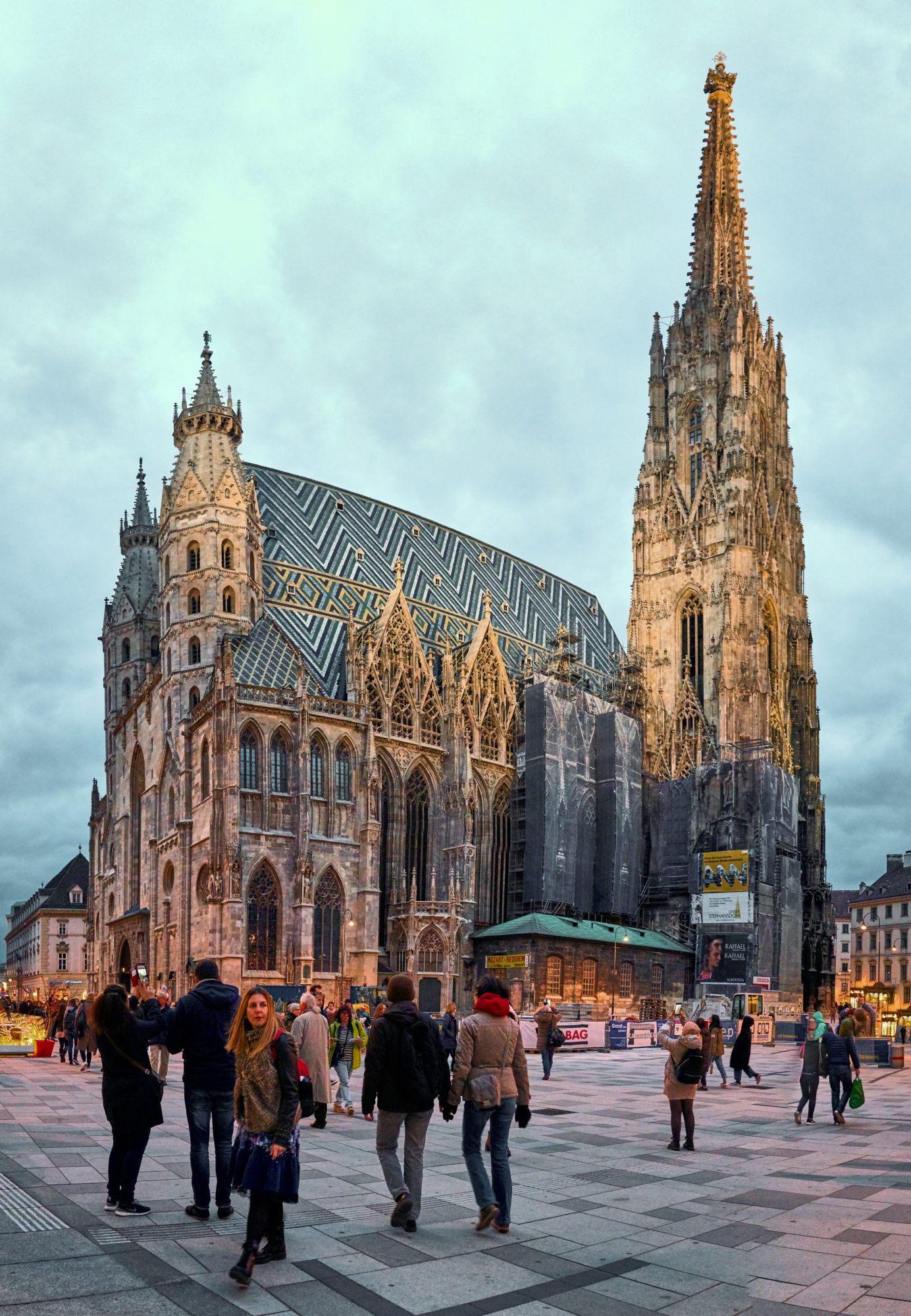
The iconic Gothic cathedral stands right in the city center of Vienna. It is one of Vienna’s landmarks and you can take it as a point of reference to finding many other cultural monuments within the city center.
Inside the dome, you can see a huge organ with 125 pipes, five medieval stained glass windows, mosaics with the Habsburg’s coat of arms, and an enormous Baroque altar with a scene of St. Stephen (the protector of the cathedral).
To explore more of the hidden corners of the cathedral, keep in mind that in the basement you can discover a tangled network of catacombs that were built as a burial place for the citizens of the town during the 18th Century. Additionally, from the bell-tower, one can enjoy a panoramic view of the Austrian capital and the enormous bell called the Pummerin (20 tonnes in weight).
2. The Hofburg Palace
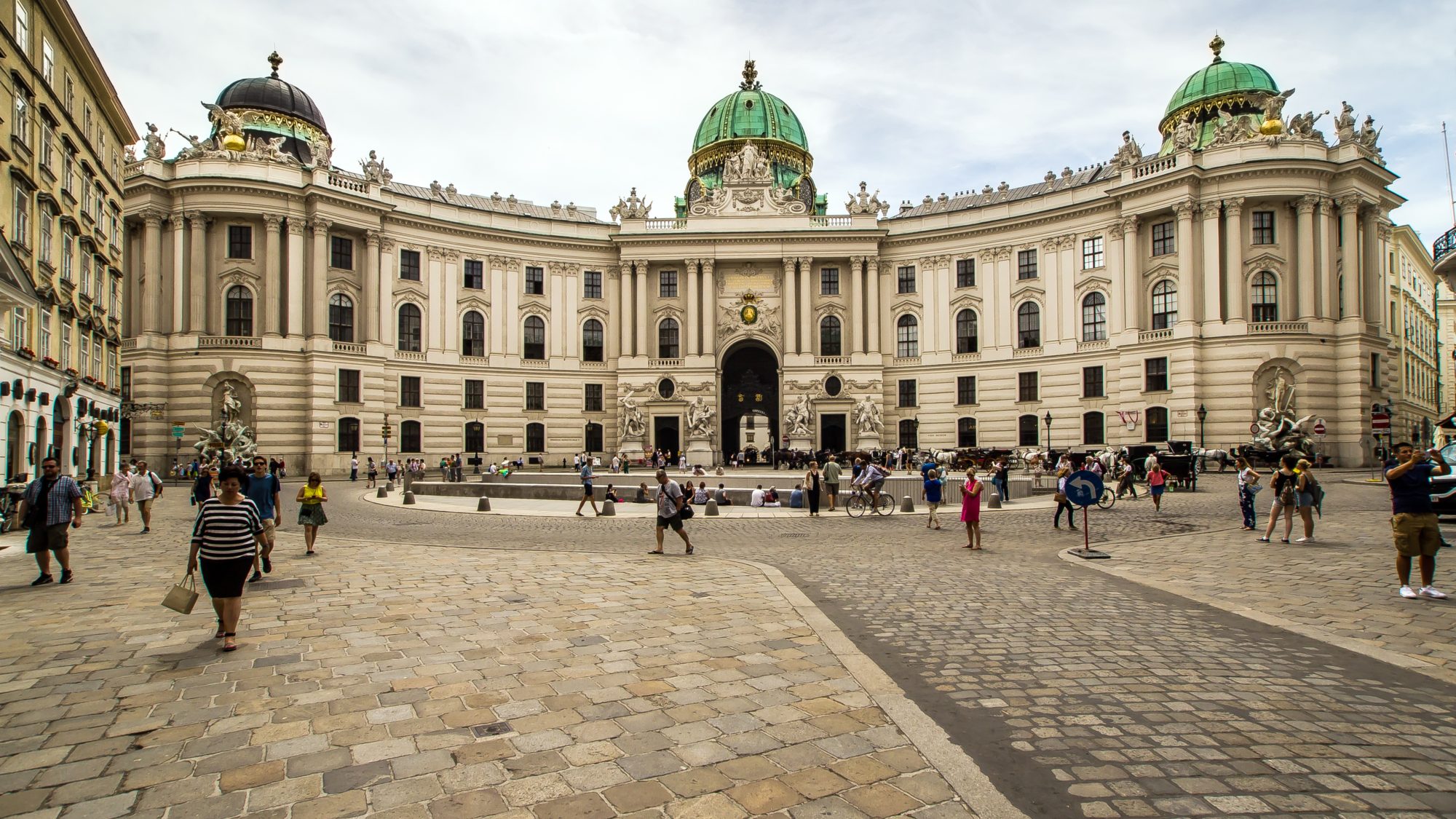
The Hofburg Palace is the oldest imperial palace of Vienna and it features a vast complex of buildings erected in the heart of the city. The original medieval castle was gradually extended and the Habsburgs added many modern buildings of their time to the old core of the residence.
The Royal Apartments (Kaiser Apartments) are housed in the Amalia Wing and they are preserved exactly as they were during the reign of Emperor Franz Josef and his wife Elisabeta. The world’s most important Treasury is housed in the oldest part of the Hofburg and contains two of the magnificent imperial crowns.
You can also visit the Imperial Chapel (Burg Kapelle) in one of the oldest parts of the palace, the Imperial Collection of Silverware, and The Ethnographic and Ephes Museums in the new wing of the Hofburg (the Neue Burg)
3. The Austrian National Library
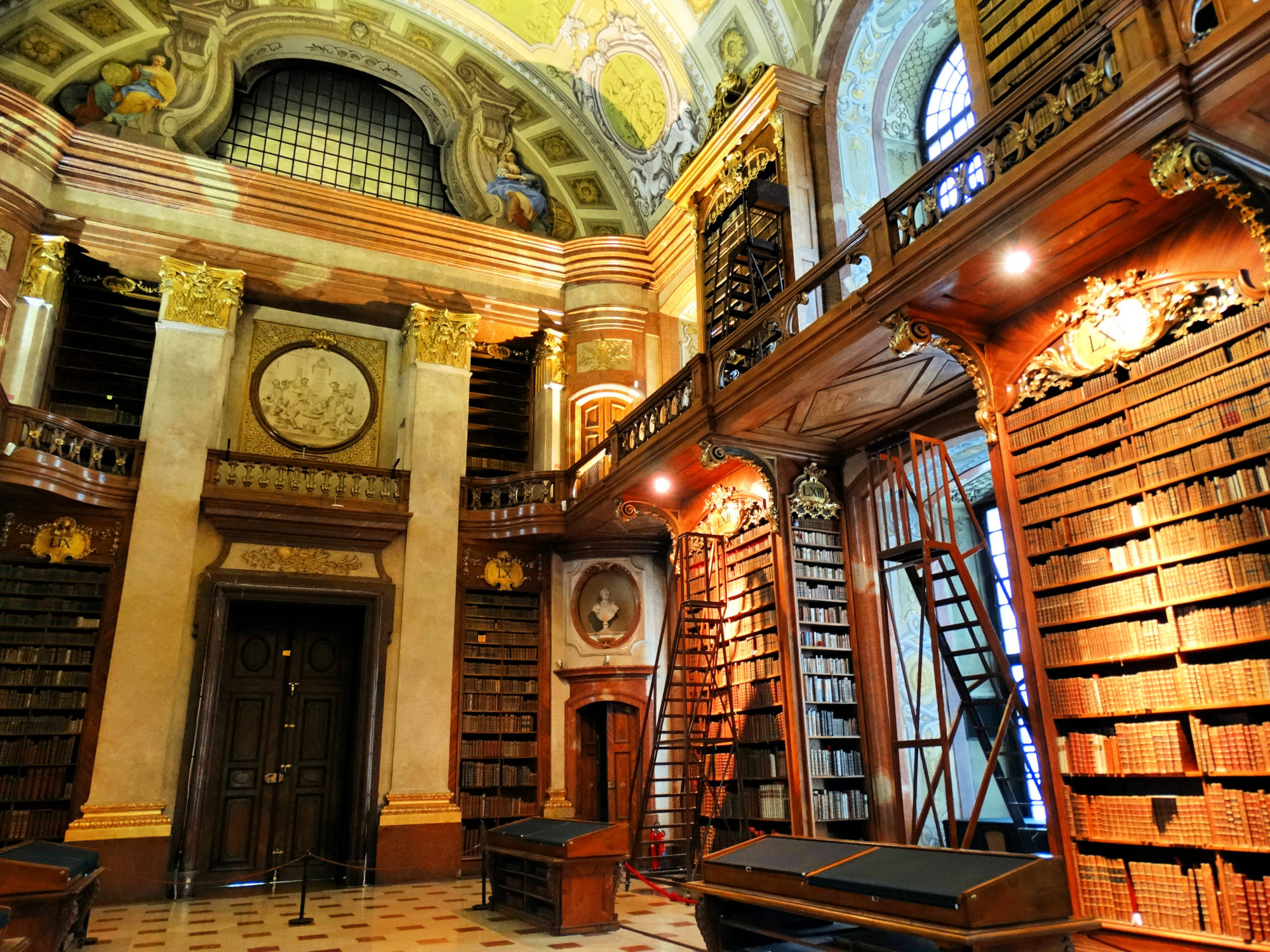
With more than 8 million books, the Austrian National Library is one of Europe’s oldest libraries. Housed in a back wing of the Hofburg Palace, the National Library displays nine special collections and parts of them are on UNESCO’s Memory of the World List.
Built under Emperor Charles VI and designed by the famous baroque architect Johann Bernard Fischer von Erlach, the State Hall is considered one of the most beautiful library halls in the world and you shouldn’t miss visiting it during your stay in Vienna.
4. The Spanish Riding School
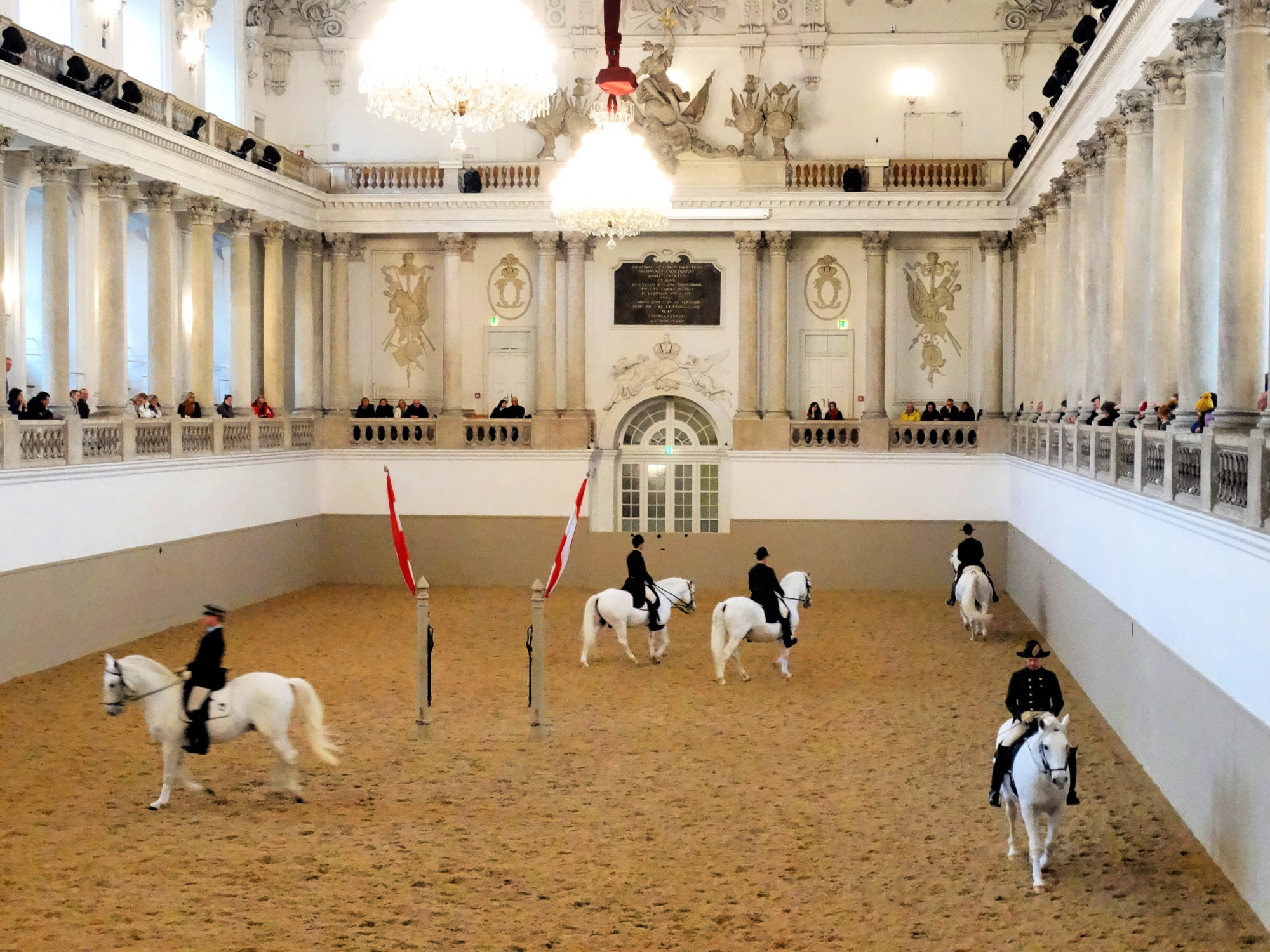
Also hosted in a secondary wing of the Hofburg Palace, the Spanish Riding School offers an insight into the years of training of the Lipizzaners and their riders.
Regular performances take place every week and each morning, the curious can witness the exercises riders and their horses practice on a daily basis. The training of the Lipizzaner stallions is accompanied by classical Viennese music which creates a specific atmosphere of the representation.
5. Mozart’s House (Mozart Haus)
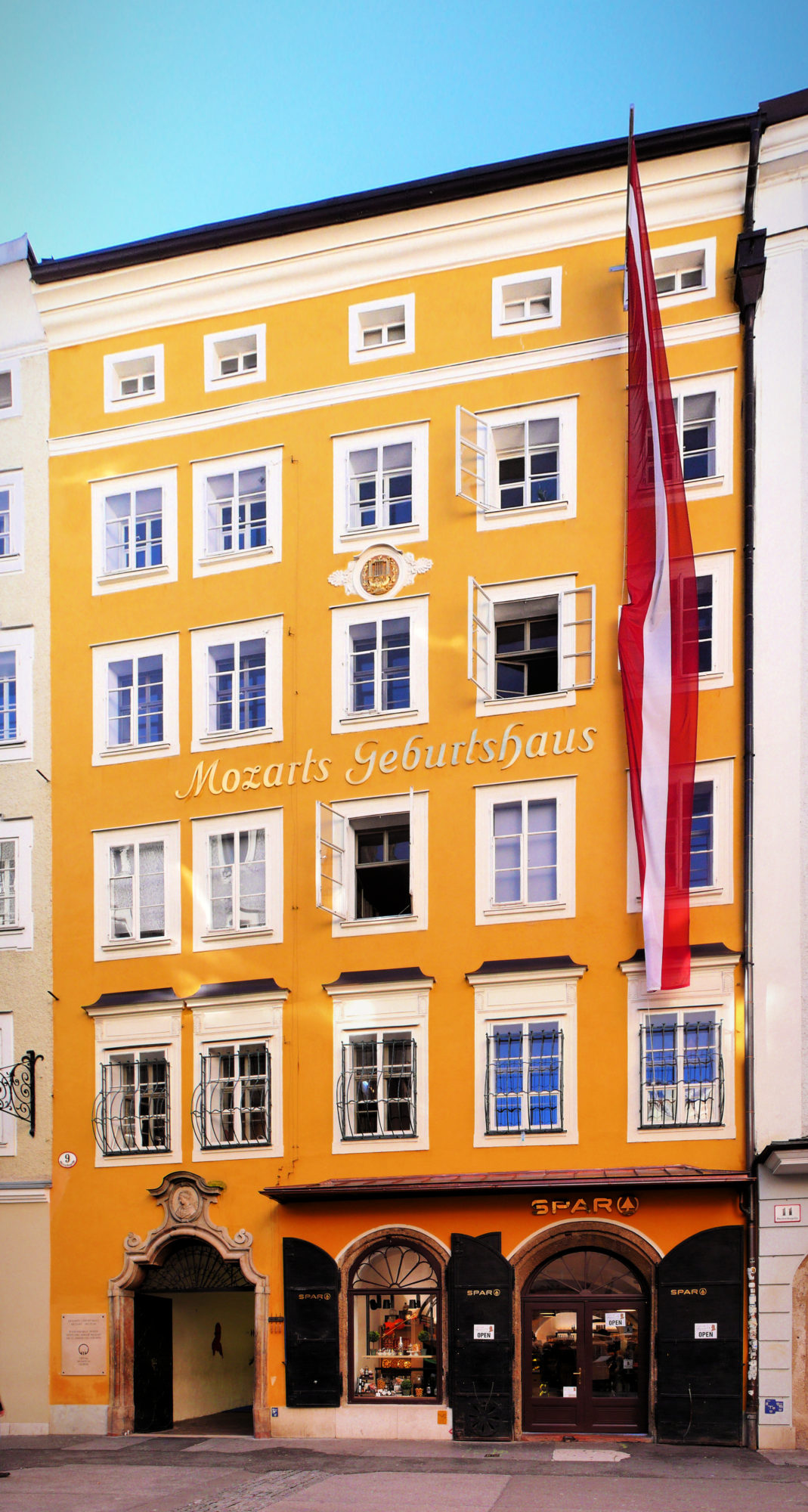
The only surviving apartment in Vienna inhabited by Mozart stands a few streets back to the main cathedral of Stephan’s Dom Kirche. While living here between 1784 and 1787, Mozart composed some of his most important works, such as The Marriage of Figaro opera.
On several floors, the Mozart Haus displays informative panels about Mozart’s life and the years he spent in the Imperial Capital. In Mozart’s apartment, you can find out how the family lived, while the second basement floor contains the event room where concerts are held.
6. Schonbrunn Palace
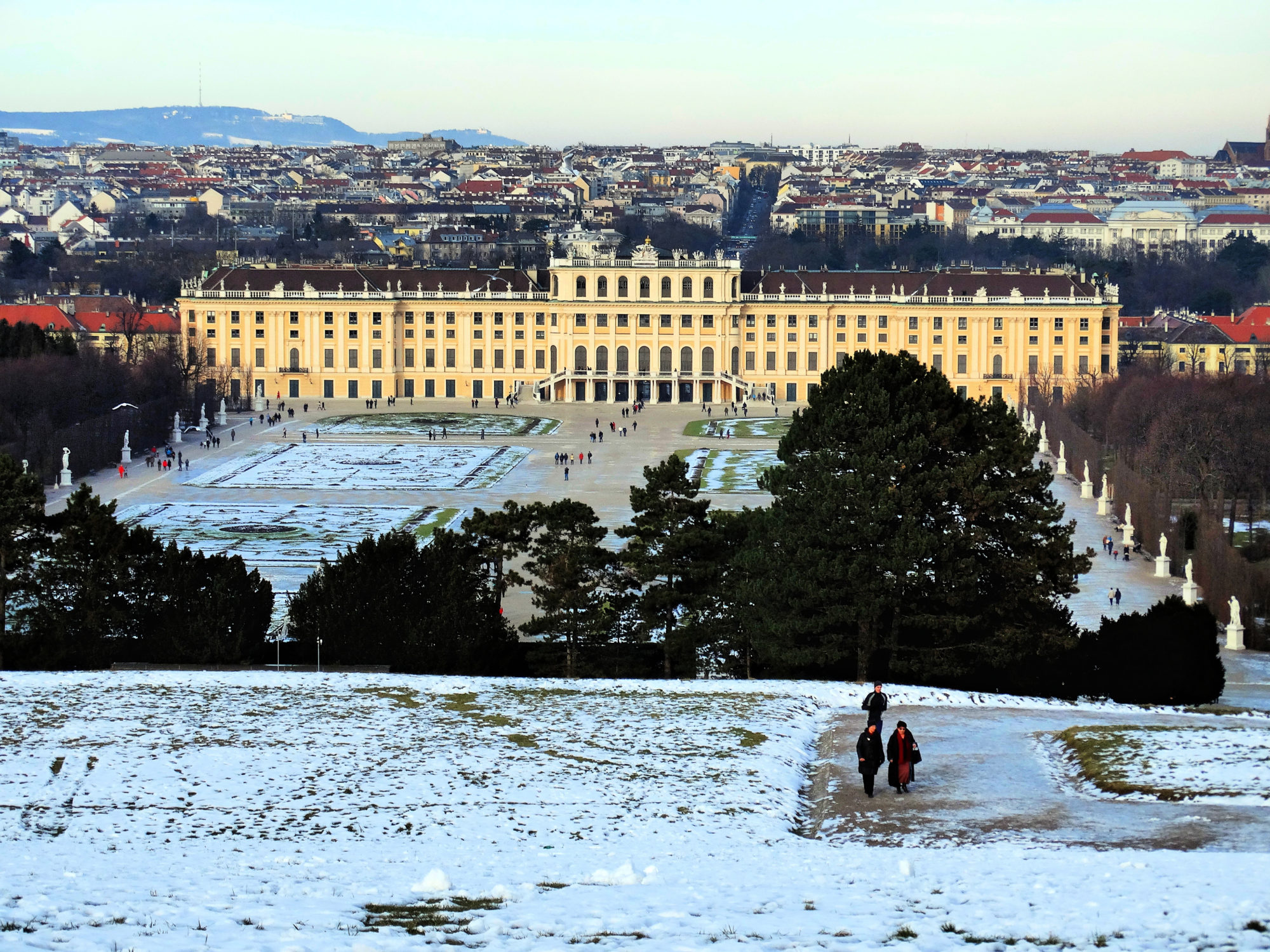

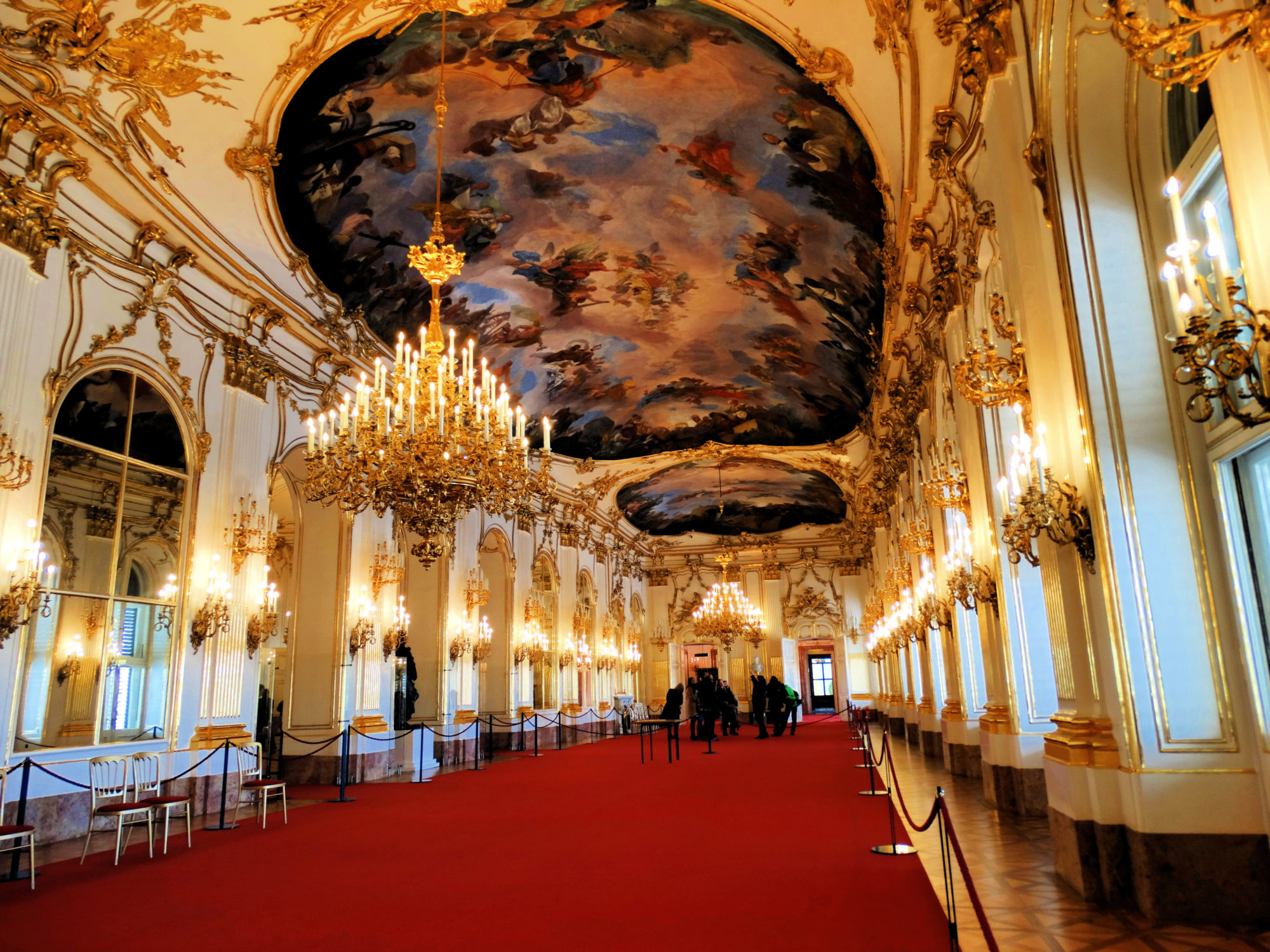

The Schonbrunn Palace is the former summer residence of the imperial Habsburg family. Built in the 17th Century by the famous architect Johann Fischer von Erlach, the luxurious palace with Baroque gardens also comprises the oldest zoo in the world. In the 18th Century, Empress Maria Teresa has refurbished the whole interior design of the palace in the Rococo style.
The Baroque gardens were designed for the imperial family to stroll and they feature a Gloriette building on top of a small hill, Roman ruins, and of course, water fountains and mythological statues.
You can easily plan a whole day to explore this monumental complex, situated on the outskirts of Vienna.
7. The Museum Quarter
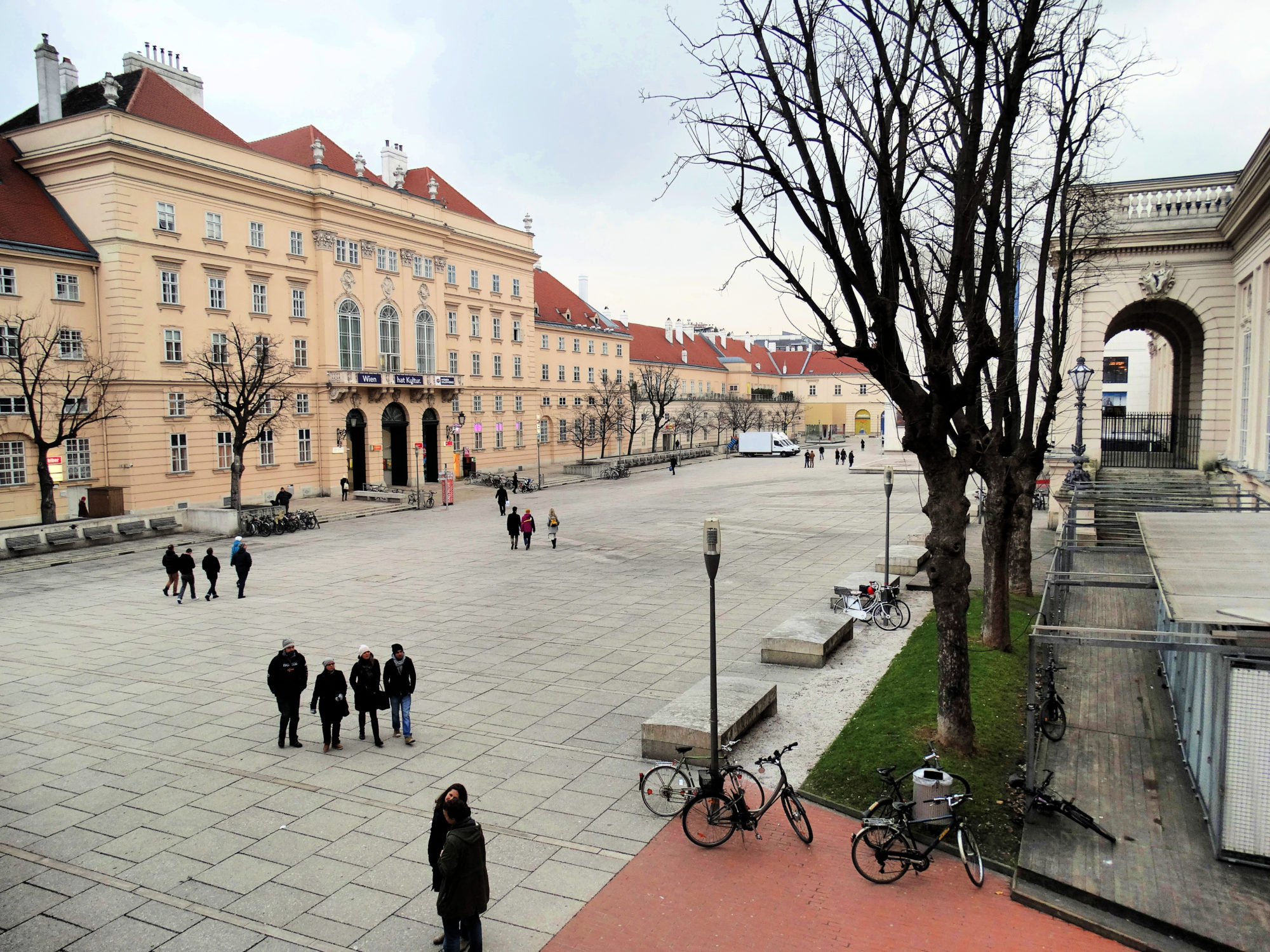

This cultural district features a wide range of modern arts and culture and it is one of the world’s largest cultural complexes. You will find some of the best examples of visual art, architecture, theater, dance, and music, as well as art and culture for kids and young adults, digital culture, and fashion.
In the courtyard of the Museum Quarter (also called Quartier 21), one can find numerous museums, exhibitions, and cultural events. For example, Leopold Museum focuses on the masterpieces of Egon Schiele (1890-1918) but it also encompasses other Austrian Expressionists.
In addition, the Mumok Museum is one of the largest museums in Central Europe for art.
8. The Belvedere
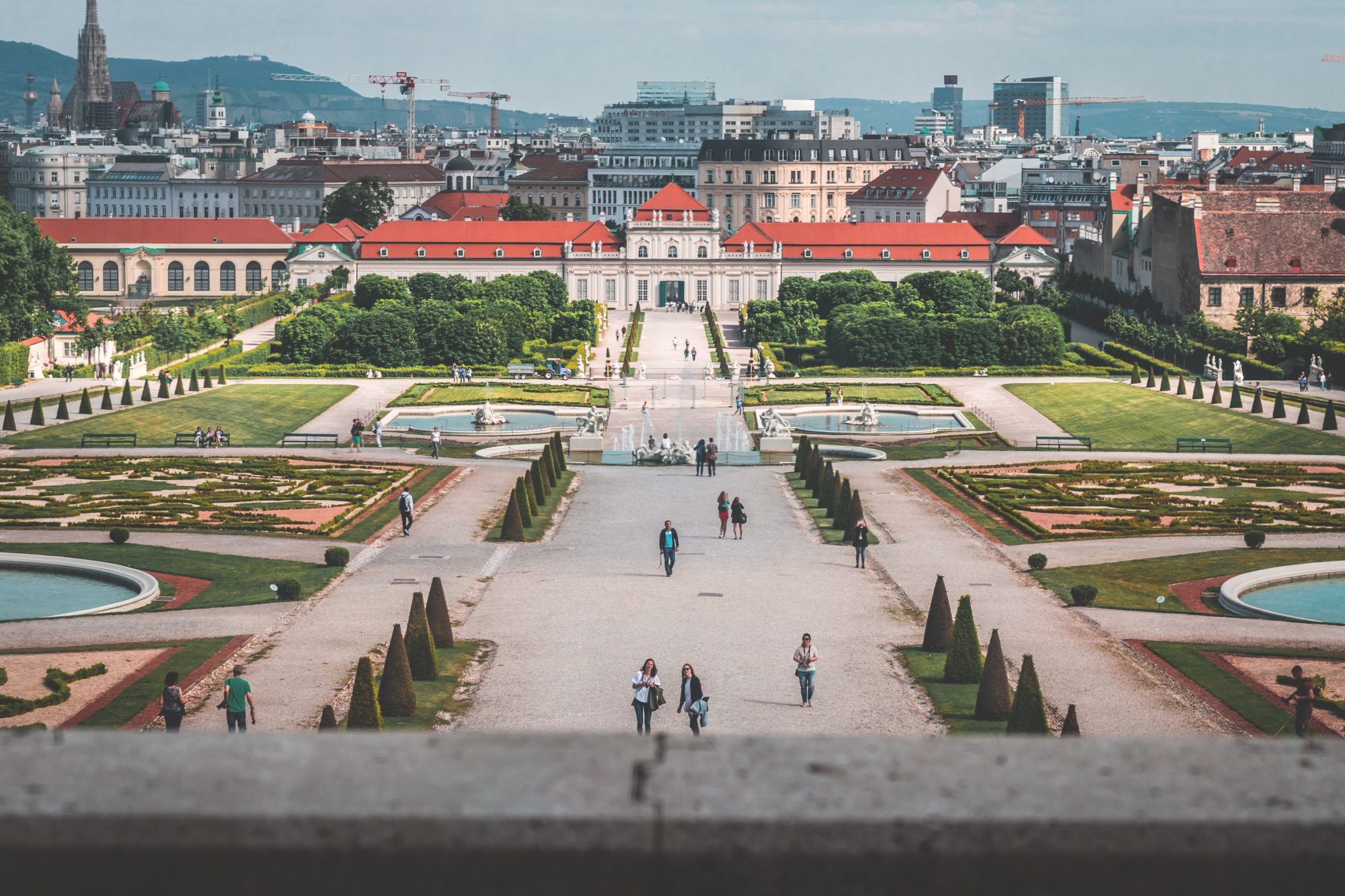

The Belvedere’s two magnificent palaces—the Upper and the Lower Belvedere, were built in the 18th Century as the summer residence for the general Prince Eugene of Savoy. The palaces with their extensive gardens are one of the world’s finest Baroque landmarks.
The Upper Belvedere houses the collection of Austrian art dating from the Middle Ages to the present day. At the heart of the display is the world’s largest Gustav Klimt collection (including the famous The Kiss and Judith as Klimt’s golden pictures). Other works of French Impressionism and Viennese Biedermeier are also some of the museum’s highlights.
The Lower Belvedere houses the former staterooms, with the Marble Gallery and the Golden Room. In addition, the Orangery was refurbished as a venue for temporary art exhibitions focusing on Austrian art in an international context.
9. The Winter Palace
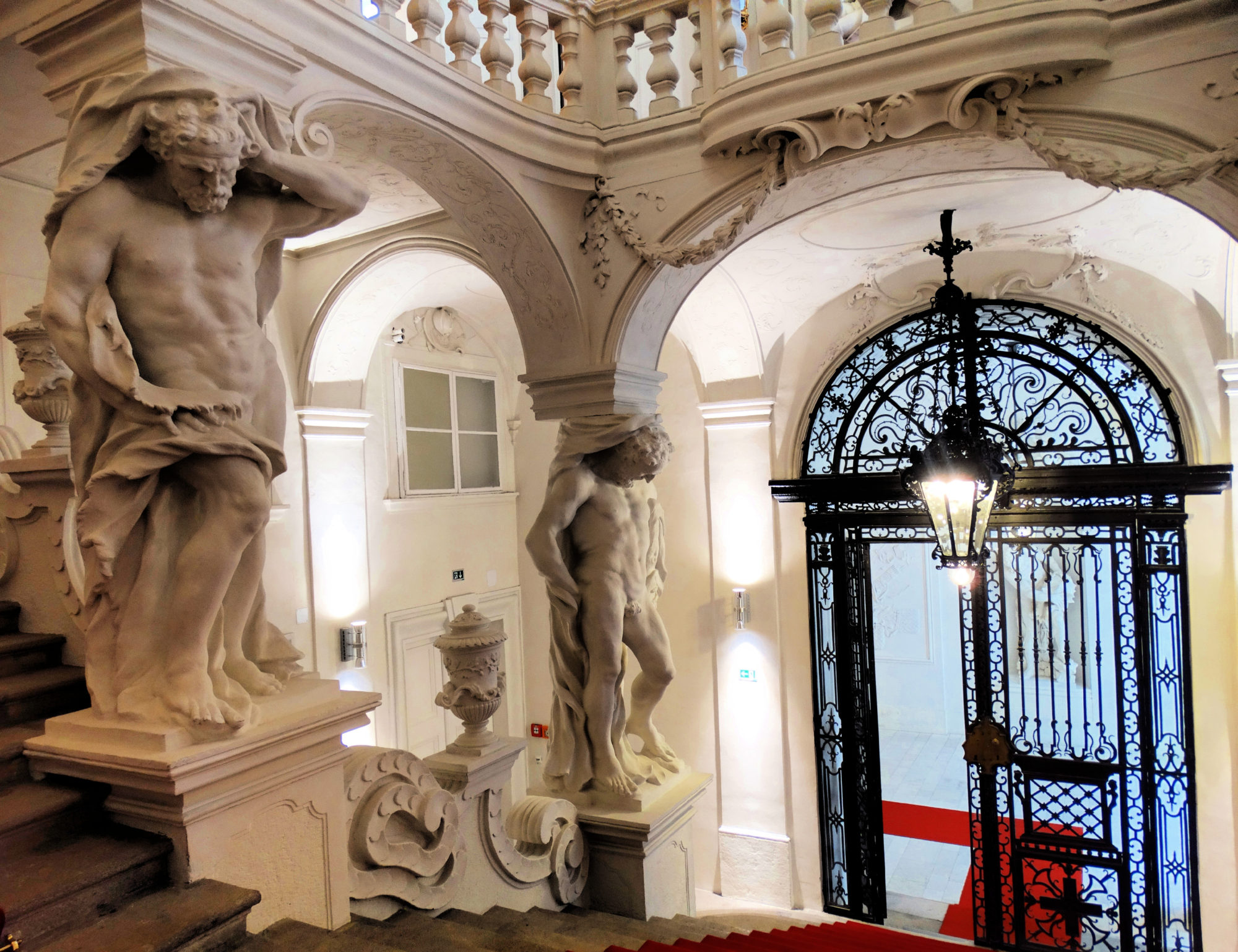

Part of the Belvedere complex but sitting in a separate location, the Winter Palace once hosted the winter stately residence for Prince Eugene of Savoy. You will walk through the staterooms and cabinets of the royal residence and see elaborately carved ceilings, walls adorned with mirrors or tapestries, and Oriental original porcelain.
The Winter Palace is now a center of art and culture and offers more information about the imperial capital.
10. The Jewish Museum
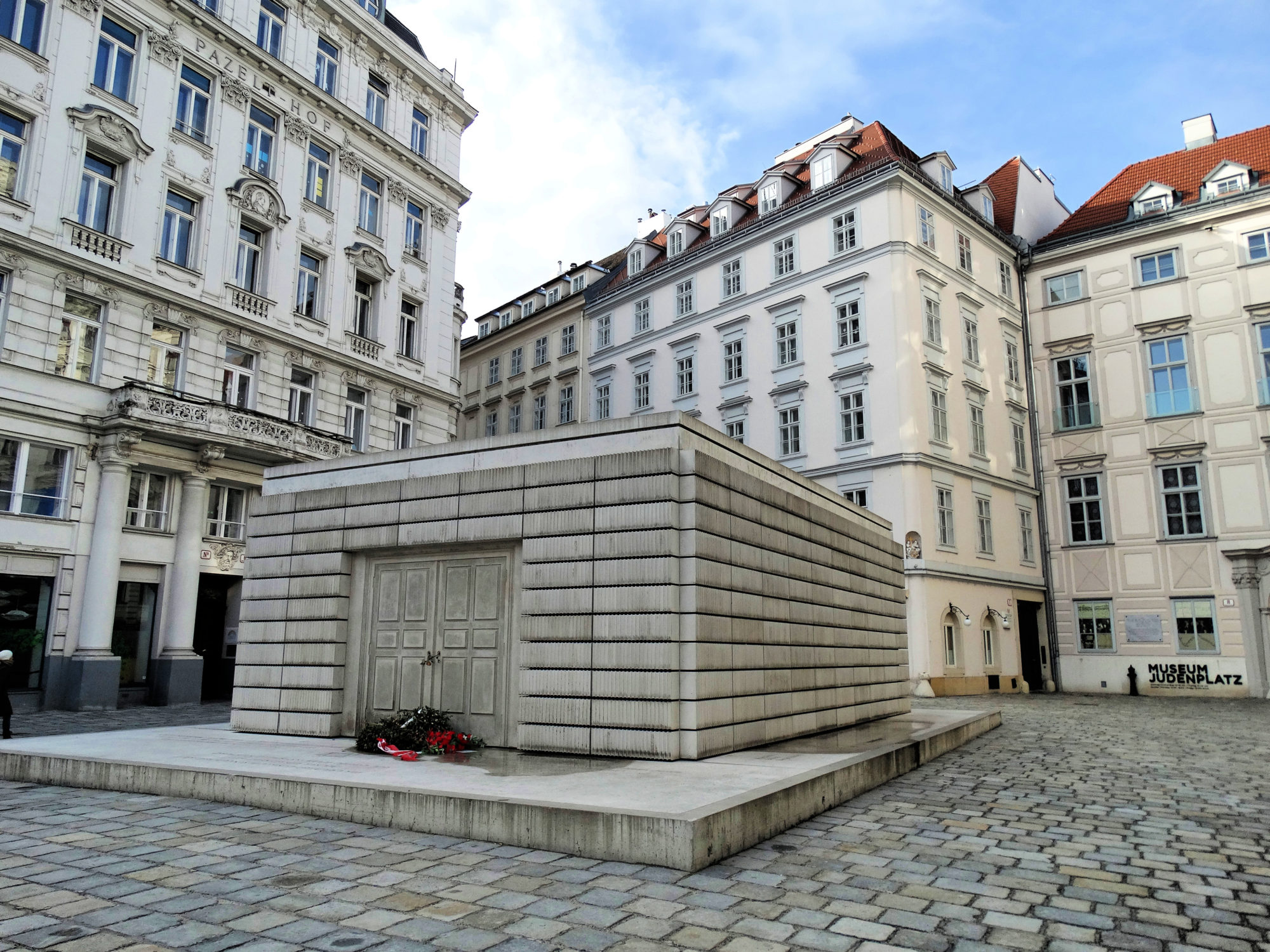

The Jewish Museum of Vienna is a challenging place where one can encounter, confront, and better understand Jewish history, religion, and culture. The first Jewish museum in the world was founded in Vienna in 1895 and the original collection focused on the culture and history of the Jews in the Austro-Hungarian Empire.
Nowadays, the museum in Judenplatz Square (the square of the Jews) also features the excavations of a medieval synagogue and a monument dedicated to the 65,000 Austrian Jews murdered during the Shoah.
Have we missed any great things to do in Vienna that you feel should be included? Comment below!
Suggested next reading: 15 Astonishing Mountain Towns In Europe Worth Visiting


Das gleiche ist eigentlich auch meine Meinung.